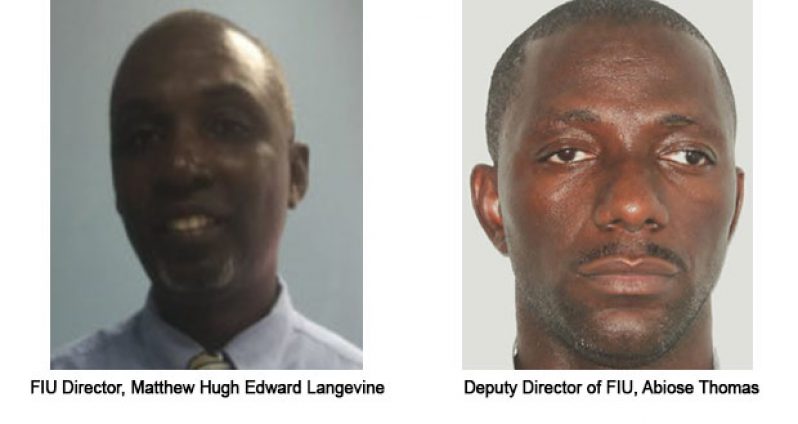THE Private Sector Commission (PSC) has called on government to move swiftly to address the establishment and operationalisation of those institutions that mitigate perceptions of corruption and the furtherance of the evolution of a truly democratic society.In a statement on Tuesday the business umbrella body said failure to so do will create an all-time lack of interest by our society in our national politics.
“Specifically, we refer to the Public Procurement Commission and the Integrity Commission, the establishment of which entities the Government has committed itself to. On both sides we must compromise, these are not political institutions but are meant to add to transparency and accountability. Good civil society members (regardless of how they are regarded politically) should be placed on these Commissions.”
“We believe that the time has come for an end to the procrastination on these matters and for the President to give effect to the commitment they have made to the nation on the setting up of these Commissions. We believe that the failure to establish these entities poses a threat to legitimate business activities, creates unfair business to business competition and indeed is the reason why some legitimate businesses cannot stand up to new competition.”
The Private Sector Commission also urged the Government to fully operationalise the Financial Intelligence Unit and to equip the entity with the necessary personnel to investigate and prosecute financial crimes. “Money laundering is a scourge all over the world that cannot be ignored here in Guyana. It creates unfair advantages for legitimate companies by the lowering of prices beyond cost. It eliminates legitimate competition and feeds into the drug trade. We appeal to all of our politicians to put Guyana and its legitimate tax payers first,” the PSC said.
Only last week the Office of the Prime Minister said that the Public Procurement Commission (PPC) is expected to be put in place shortly with appointment of its members by President David Granger. The OPM said Clerk of the National Assembly, Mr. Sherlock Isaacs disclosed that the names of the Commission members have been sent to the President for appointment. These names are Emily Dodson, Carol Corbin, Sukrishnalall Pasha, Ivor English and Nanda Gopaul.
These persons were nominated by the Appointments Committee and were approved by two-thirds of the elected members of the National Assembly on August 8. Under provisions of the Constitution, the President could only appoint members of the PPC after their nomination has been approved in the House, and by a two-thirds majority. The PPC has been a contributing factor that predated the holding of the General and regional elections in May 2015, as the then opposition had insisted that Cabinet should cease the practice of giving ‘no objection’ to contracts for state projects and services, in favour of appeals by aggrieved contractors to the PPC.
Regarding the FIU, the OPM had said the Director and Deputy Director will assume duties with effect from September 19.The two top anti-corruption officials have since both entered into separate contracts with the Finance Secretary. At its Sitting before the August 8 recess, the National Assembly had unanimously appointed Mr. Matthew Hugh Edward Langevine to the post of FIU Director and Mr. Abiose Thomas as Deputy Director. Recommendations for the appointment were made by an Appointments Committee of the National Assembly. The FIU is a specialised body that was created under the Anti-Money Laundering and Countering the Financing of Terrorism Act, which was made into law by the new Coalition Government. The Clerk of the National Assembly explained that he acted expeditiously to give effect to the decision of the House.
On the issue of the Integrity Commission, President David Granger himself said recently that the commission is likely to become fully functional before the end of the year, and noted that government is working to ensure that there are functional laws and a strong organisational structure established before the commission can function effectively. President Granger said what was inherited from the former People’s Progressive Party (PPP) administration is “unworkable.”
Though he could not provide a specific timeline as to when the Integrity Commission will become functional, the President said there has to be “tightening” of the legislation to ensure that those who are found guilty of committing illegal acts while in public office are prosecuted. “We are working on the legislation, it will be brought to cabinet, and I expect that before the end of this year there will be a functioning Integrity Commission,” said President Granger. The Integrity Commission, the President said, was a “poorly funded” and dysfunctional organisation. “We are going to create functional laws; functional organisation structure, and I expect that by the end of this year, when Parliament resumes in October, we’d be able to bring that legislation before the National Assembly. Give us time,” he remarked.
President Granger likened the functioning of the Integrity Commission in the past to that of a post office, where persons submitted their returns but no action was taken. “There was a perception that the PPP was using the Integrity Commission as a means, rather than preventing corruption, of checking people’s personal finances,” said the President.




.jpg)










